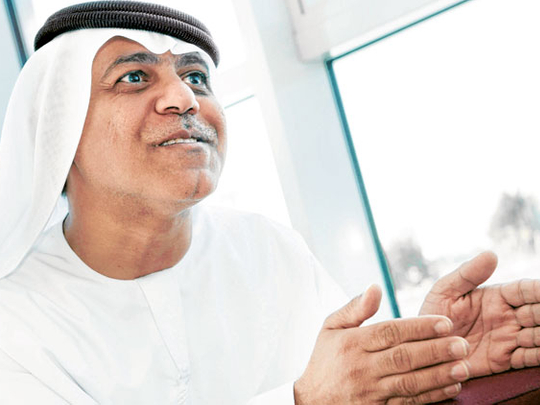
A national research and education network is rapidly spinning its web in the UAE, driving higher education into the 21st century to realise the country's goal of becoming a regional education hub.
Ankabut (meaning ‘spider' in Arabic) is the UAE's National Research and Education Network (NREN) and offers academic institutions connectivity to other education networks around the world. Established in 2009, Ankabut can also connect schools, universities, and public institutions across the UAE. These connections are facilitated through a high-speed internet bandwidth of up to one gigabyte for each institution.
Last week, Gulf News caught up with Fahim Al Nuaimi, Ankabut's new chief operating officer, to hear how the network is working to change the face of education in the UAE.
"Ankabut and its services will really help improve and boost higher education in the country to establish more institutions in this part of the world," said Al Nuaimi. "Ankabut will ease institutional operations via collaboration and networking and will therefore encourage the growth of higher education here."
The UAE's NREN is managed by Khalifa University (KU) and funded by the Information and Communication Technology (ICT) Fund. All three organisations share a commitment to innovation and progress towards establishing a knowledge-based economy.
Al Nuaimi said Ankabut is a similar initiative to Internet2 in North America, Geant in Europe or Caren in Asia. All are high-capacity regional research and education networks providing high-speed internet to universities and research centres.
Collaboration
Members of Ankabut are in fact connected to the Internet2 network, enabling them to collaborate teaching and learning with over 220 US universities. It also works in cooperation with 45 leading corporations, 66 government agencies, laboratories and other institutions of higher learning, to name but a few.
"To build a knowledge-based economy you need a network where knowledge institutions collaborate for research and education to optimise resources through e-learning, for example," Al Nuaimi said. "This all needs a specific network with high-speed bandwidth because there is no alternative way to bring all these surfaces together over commercial networks such as du or etisalat."
An example of how a university can utilise the Ankabut network is the American University in Dubai's (AUD) recent launch of its global classroom with the introduction of TelePresence technology. The live multiple videoconferencing connections to different location across the world are done over the Ankabut network — but at what cost?
"We've tried in our financial model to develop a zero-profit model as we are a not-for-profit organisation," said Al Nuaimi. "We charge Dh18,000 to Dh20,000 a month, which includes everything, connectivity, network services membership and other things."
Today Ankabut is established across 59 campuses of 20 institutions in the UAE, including the Higher Colleges of Technology, Zayed University, UAE University, Sharjah University, AUD and New York University Abu Dhabi.












